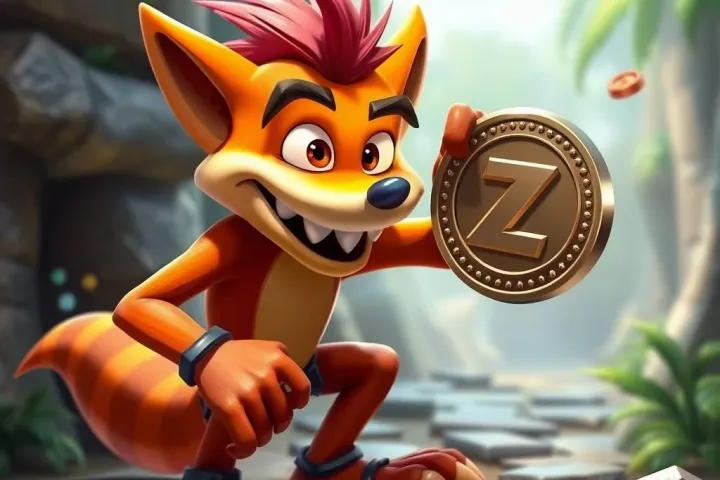Top Ten Altcoins You Should Know in the Crypto World
While Bitcoin is the most popular cryptocurrency, many other digital coins—called altcoins—offer unique features and investment opportunities. This guide explores the top ten altcoins in terms of popularity, usage, and potential for future growth. If you're thinking about entering the crypto space beyond Bitcoin, these coins are worth your attention.
1. Ethereum (ETH)
Ethereum is the most well-known altcoin and the second-largest cryptocurrency by market cap. It introduced smart contracts, allowing developers to build decentralized apps (dApps). Ethereum powers many DeFi platforms, NFT projects, and more. The recent upgrade to Ethereum 2.0 aims to make it faster and more energy-efficient through proof-of-stake (PoS) technology.
2. Binance Coin (BNB)
Binance Coin is the native token of Binance, one of the largest crypto exchanges. Users can pay trading fees with BNB, and it's also used in various DeFi apps and NFT platforms. BNB has seen huge growth due to its utility and frequent "burning" process that reduces supply over time, increasing its value.

3. Cardano (ADA)
Cardano focuses on sustainability, scalability, and academic research. Built by a team of scientists and engineers, it uses a proof-of-stake system to validate transactions. Cardano is popular among developers building smart contracts and dApps, and its strong focus on peer-reviewed technology makes it stand out.
4. Solana (SOL)
Solana is a high-performance blockchain known for its lightning-fast transaction speed and low fees. It's widely used in DeFi, NFTs, and gaming projects. Solana’s hybrid consensus model helps process thousands of transactions per second, making it a strong competitor to Ethereum.
5. Ripple (XRP)
XRP is the token used by RippleNet, which is focused on cross-border payments. Ripple works with banks and financial institutions to make international transfers faster and cheaper. Despite legal challenges from the SEC in the U.S., XRP remains a top altcoin with real-world usage.
6. Polkadot (DOT)
Polkadot aims to solve the problem of blockchain fragmentation by enabling different blockchains to communicate with each other. It supports cross-chain data transfers and scalability. DOT is used for staking, governance, and bonding in the Polkadot network.
7. Avalanche (AVAX)
Avalanche is a fast and eco-friendly blockchain platform that supports smart contracts and dApps. Its unique consensus mechanism allows for thousands of transactions per second. Developers choose Avalanche for its low fees and Ethereum compatibility.
8. Chainlink (LINK)
Chainlink connects smart contracts to real-world data using decentralized oracles. It plays a vital role in DeFi by feeding external data, such as prices and weather, into blockchain systems. LINK is used to pay node operators and secure the network.
9. Litecoin (LTC)
Created as the "silver to Bitcoin’s gold," Litecoin is a peer-to-peer cryptocurrency that offers faster transaction times. It’s widely accepted for payments and is considered a solid, stable altcoin for new investors.
10. Uniswap (UNI)
Uniswap is a leading decentralized exchange (DEX) that allows users to trade Ethereum-based tokens directly from their wallets. The UNI token gives holders a voice in the platform’s future. With the rise of DeFi, Uniswap continues to grow in popularity.
Why Consider Altcoins?
Altcoins can offer better returns than Bitcoin in some cases. They often provide solutions to limitations in the Bitcoin network, such as speed, cost, or functionality. Investing in altcoins allows you to diversify your crypto portfolio and explore various sectors like DeFi, NFTs, and gaming.
Risks of Investing in Altcoins
Not all altcoins are reliable. Some may be scams, while others may not survive in the long run. Altcoin prices can be highly volatile. Always do your research, understand the use case, and don’t invest more than you can afford to lose. Use reputable exchanges and store your coins safely.
How to Buy Altcoins
You can buy altcoins from major exchanges like Binance, Coinbase, Kraken, and others. Create an account, verify your identity, and deposit fiat or crypto to start trading. For added security, transfer your coins to a hardware wallet after purchase.
Storing Altcoins Safely
Store your altcoins in a secure wallet. Hot wallets (connected to the internet) are convenient but more vulnerable to hacks. Cold wallets (offline hardware wallets) offer better protection for large holdings. Always backup your wallet and never share your private keys or seed phrases.
Altcoin Trends to Watch
The crypto space evolves fast. Some key trends include:
- Layer 2 scaling: Many altcoins aim to solve Ethereum’s congestion problems.
- Web3 integration: Projects offering decentralized internet services are gaining traction.
- Eco-friendly coins: Green cryptos are attracting more attention from investors.
- Regulation: Legal clarity can influence the adoption and value of altcoins.
Final Thoughts
Altcoins are more than just alternatives to Bitcoin—they are engines of innovation. Whether you're interested in smart contracts, faster payments, DeFi, or NFTs, there's likely an altcoin that fits your goals. Still, the crypto world is risky and unpredictable. Do thorough research, follow news updates, and stay cautious. With the right knowledge, altcoins can be a valuable part of your digital asset journey.
